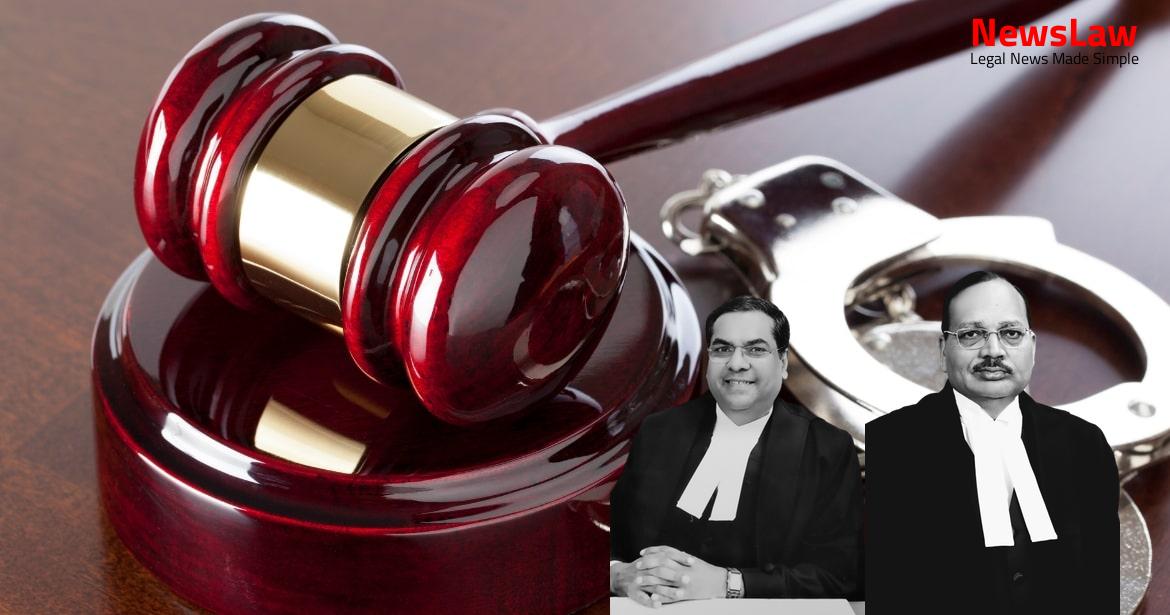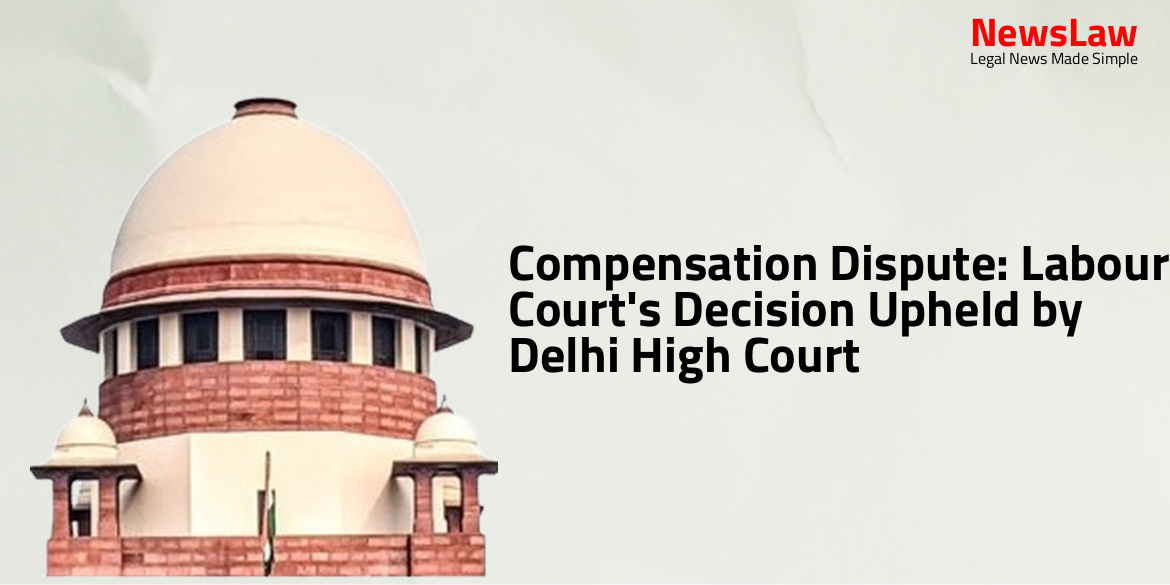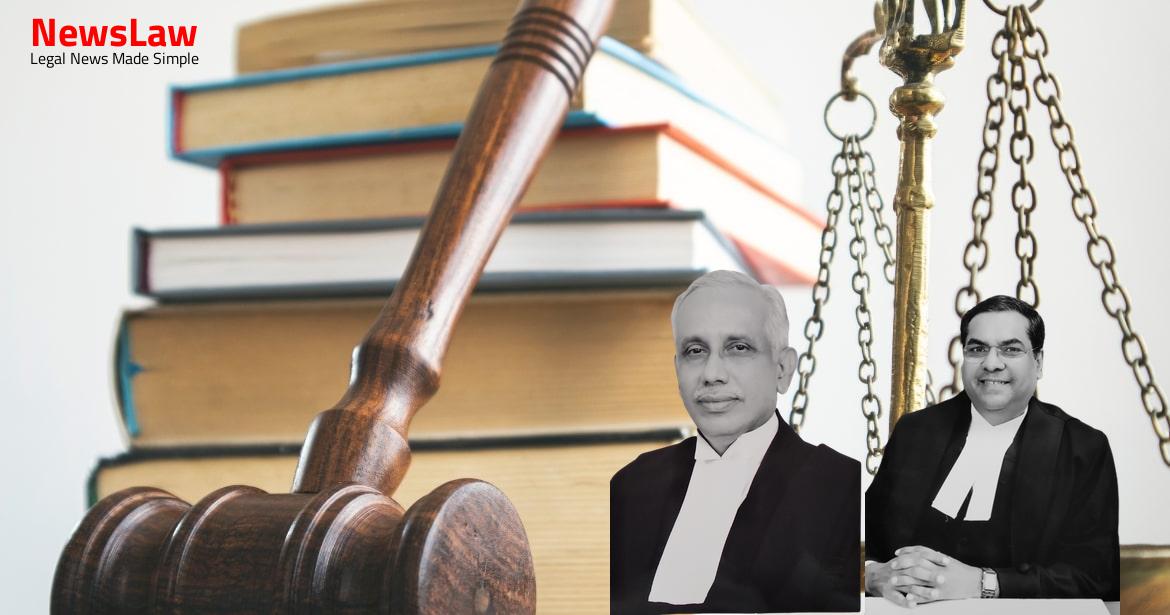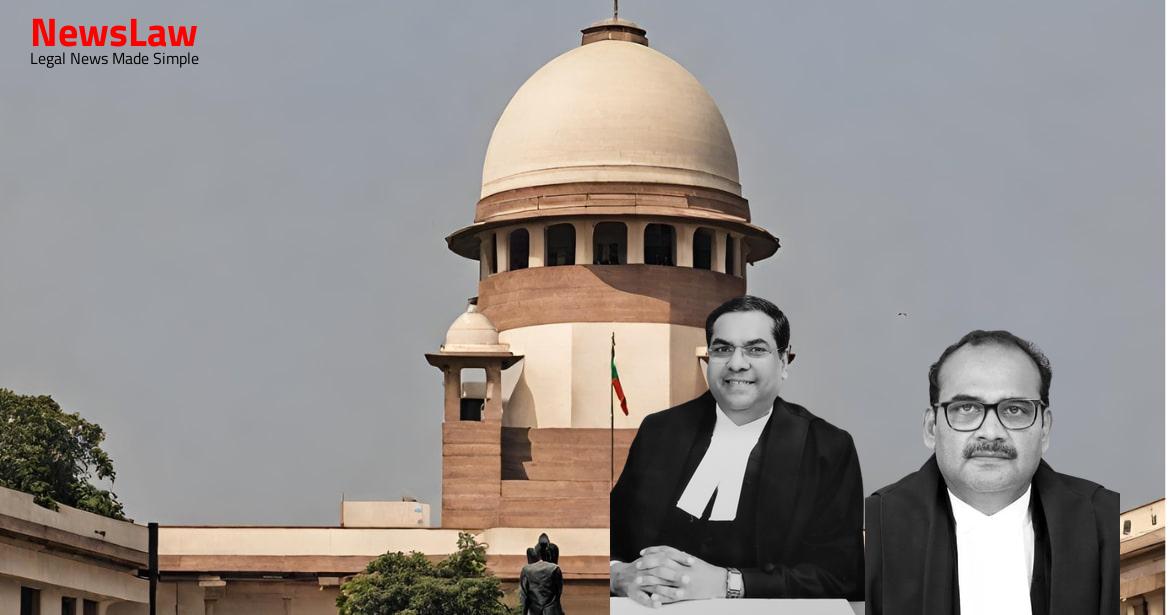Explore the intricate legal analysis conducted by the court in an arbitration case, focusing on the parties’ agreement for arbitration per Section 21 of the Arbitration Act. Discover the importance of proper consent and agreement in referring matters to arbitration, as outlined by the court’s thorough examination. Dive into the complexities of arbitration proceedings and the crucial role of mutual consent in determining jurisdiction. Follow along for a detailed exploration of the court’s legal analysis in this thought-provoking summary.
Facts
- The plaintiff filed a civil suit for settlement of accounts regarding the transportation of coal as per the agreements dated 01 October 1990 and 13 December 1991.
- The plaintiff transported coal from coal mines to the defendant’s plant based on delivery orders.
- Issues raised included transportation charges, deductions made by the defendant, plaintiff’s liability for interest, and alleged misconduct of the arbitrator.
- The defendant contested the suit filing detailed objections, arguing for deductions due to delays, quality issues with coal, and fraudulent acts causing losses.
- Various court orders were passed regarding the proceedings, with an arbitrator’s report stating the plaintiff was due Rs.24,03,300 and entitled to certain transportation rates.
- Defendant objections to the arbitrator’s report were rejected on grounds of appointment and time limitations.
- The plaintiff’s responsibility was to deliver coal on time at the defendant’s plant.
- The plaintiff had raised issues of deductions based on excess reduction and lack of evidence for quality claims by the defendant.
- A bank guarantee was furnished by the plaintiff for contract extension, and the appointment of the arbitrator by court order was not challenged.
- Transport charges were to be paid based on coal loaded at collieries, not on quantity delivered unless within a 1% shortfall.
- The defendant’s first appeal before the High Court was dismissed.
- The High Court upheld the trial court’s decision to refer the matter to arbitration as per Section 21 of the Arbitration Act.
- S.K. Mantri, Chartered Accountant, was appointed as the arbitrator with the parties’ consent.
- The fee for the arbitration was to be paid to S.K. Mantri as per the prescribed arbitration schedule.
Also Read: Analysis of Bail Conditions in Criminal Appeal No. INSC 48/2024
Issue
- The legal issue in the present appeal is whether the parties agreed to refer the subject matter of the suit to arbitration under Section 21 of the Arbitration Act, 1940.
Also Read: Conviction Upheld for Murder and Concealment of Body
Analysis
- Order XXVI Rule 9 of the Code empowers the court to appoint a commissioner for local investigations to elucidate matters in dispute.
- Section 21 of the Indian Contract Act requires parties to agree in writing for arbitration, which is a strict mandate.
- A common mistake of fact does not render a contract void, unlike a mutual mistake.
- A commissioner’s role is limited to examination or valuation, not adjudication.
- The court may appoint a facilitator or expert for specific purposes to aid in fact ascertainment.
- The appointment of a commissioner or expert does not negate the court’s jurisdiction to make final decisions.
- Reports by commissioners or experts are non-adjudicatory and subject to contestation by parties.
- Appointment of commissioners can be done with or without consent of the parties involved.
- The court’s jurisdiction to refer matters to arbitration is only valid with parties’ mutual consent or a pre-existing agreement.
- Commissioners are appointed by the court and perform ministerial rather than judicial acts.
- The requirement for parties to agree before the court for arbitration applies only to arbitration cases, not to commissioner appointments.
- Commissioners’ reports are opinions submitted for the court’s consideration, not binding decisions.
- In cases where there is no arbitration agreement between parties, the High Court should not refer the matter to arbitration without a joint application.
- A mutual mistake occurs when one party is mistaken about the other party’s intention, leading to a misunderstanding of promises.
- The consent of all parties involved is crucial for the Court to have jurisdiction to refer a matter to arbitration.
- Consent given afterward cannot validate a reference that was void from the beginning.
- An agreement to arbitrate must involve a mutual decision to forgo court adjudication and have the matter resolved by an arbitrator.
- Errors in quality or attributes of items in a contract do not always render the contract void.
- A counsel should not give consent for arbitration on behalf of parties without specific authority, except in urgent situations.
- Differentiating between arbitration and expert opinion is essential, as the roles and decision-making processes vary.
- Various types of tribunals exist, and their functions are derived from different sources, including mutual consent of parties.
- The essence of an arbitration agreement lies in the intent for the tribunal’s decision to be binding, impartial, and enforceable.
- Quoting legal experts and precedents, the importance of proper agreement and consent for arbitration is emphasized.
- An agreement for arbitration should involve all interested parties and be signed by them to be valid.
- Mistakes integral to the contract’s subject matter can render the agreement void.
- Expert opinions aid the court in decision-making but do not have a binding effect.
- Proper procedure and consent are necessary for a matter to be referred to arbitration during legal proceedings.
- Once an agreement is in writing and signed by all parties, the matter can be referred to arbitration under the relevant laws and regulations.
- Section 21 of the Act allows parties in a suit to apply for an order of reference to arbitration.
- All parties involved in the suit must agree to refer any matter of difference between them to arbitration.
- The agreement must be made in writing and before judgment is pronounced in the suit.
- The application for an order of reference must be made to the court where the suit is pending.
- The subject matter referred to arbitration must be one of the matters in difference between the parties to the suit.
Also Read: 1991 Decree Invalid: No Determination of Rights in Property Dispute
Decision
- The appeal was allowed and the impugned order was set aside.
- The report of the Chartered Accountant is not an award but a report of a court-appointed commissioner.
- Shri Sushil Kumar Mantri, CA, Sehore, was proposed and accepted as Panch of the case.
- The civil suit will be decided on merits without being influenced by previous findings.
- All pending applications were disposed of with no order as to costs.
- Objections to the report will be considered after hearing both sides, and the trial will proceed as per law.
- Arbitrator’s fee will be payable as per the schedule, with both parties sharing the cost equally before settlement.
- Arbitrator to present decision within stipulated period and case to be presented in the Arbitration Court.
Case Title: M.P. RAJYA TILHAN UTPADAK SAHAKARI SANGH MARYADIT PACHAMA DISTRICT SEHORE Vs. M/S MODI TRANSPORT SERVICE (2022 INSC 553)
Case Number: C.A. No.-001973-001973 / 2022



